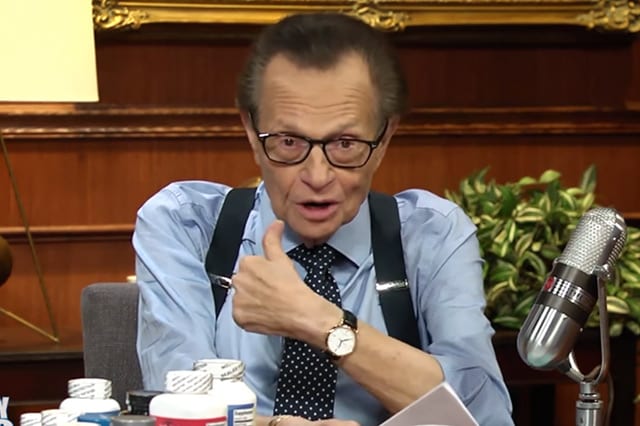PUNE: Not even a mile from where Dhondo Keshav Karve, revered as Maharshi Karve, lived and started his first school for widows, the Karve Institute of Social Service stands as a memorial to the man himself.
"The institute was started by his son Bhaskar after the state government gave him land at the hillside. Maharshi Karve himself used to come here a lot for his morning walks in the area. So as a memorial, Bhaskar Karve set up the institute, because he felt that training a cadre of professional social workers is essential," says Deepak Walokar, the current director of the institute which opened its doors on November 9, 1963, a year after Karve's death.
Karve's career started out of colleges in Mumbai and Pune. He was a long-time mathematics lecturer at Fergusson College and moved full-time into ensuring that widows could get married, and that they have enough education to unshackle themselves. The erstwhile deeply orthodox society of Pune forced him to move to Hingane, now a bustling south-western suburb of the city. He set up base in a small hut where he educated his first four students, all widows.
In 1916, out of a building funded by a Parsi businessman, he set up the India Women's University. It would become the SNDT University four years later, and expand even further, but that journey took him across the world, as he notes in his 1936 autobiography in English named Looking Back.
He had already enroled some students, but he needed more awareness, and certainly more funds. "About the end of 1928, an idea struck me that if I visited England I would be able to meet a number of young men from all parts of India, who would be studying there, and I might be able to impress them with the importance of the women's university. There was also the chance of getting some contributions from them which would pay a part of the expenses..." reads an excerpt from the autobiography.
It would ultimately take him thirteen months to complete the world tour, through a large part of Europe, the United States, and Japan.
He met theoretical physicist Albert Einstein in Berlin. His appeal for funds was also somewhat successful. He received about Rs 27,000 from the Indian community and others.
His Africa tour, a few years later, was more successful, as he narrated that his fund-raising efforts among Indian settlers in Kenya and South Africa raised a fair amount of money for his university.
He also says in his autobiography that Japan was a huge influence in his career, because he was impressed with their women's university setup, a lot of practices of which he adopted into the SNDT Women's University, named after the family which donated a large sum to Karve towards expanding the university in 1920.
Maharshi Karve Stree Shikshan Sanstha, the trust which maintains and runs most of the institutes set up by Karve, on his 55th death anniversary on Thursday is holding an exhibition of some of his personal belongings, including his simple clothes, the commendations he received, including the Bharat Ratna, a degree from Banaras Hindu University signed by then vice chancellor Sarvapalli Radhakrishnan and his academic documents, with his Bachelor of Arts degree from the University of Bombay being announced in articulate letters. The display is open for a few days.
For the caretakers however, one of their proudest displays is Karve's earliest efforts in getting widows remarried and housed in respectable shelters, for which he urgently sought help from well-wishers.
"He founded a widows' welfare home and advocacy organisation while he was a teacher at Fergusson College, in the 1890s. And he was so desperate in getting help for them, that he prepared pamphlets and sought help, all in his own handwriting," said Shripad Kulkarni, one of the caretakers of the exhibition.
"The institute was started by his son Bhaskar after the state government gave him land at the hillside. Maharshi Karve himself used to come here a lot for his morning walks in the area. So as a memorial, Bhaskar Karve set up the institute, because he felt that training a cadre of professional social workers is essential," says Deepak Walokar, the current director of the institute which opened its doors on November 9, 1963, a year after Karve's death.
Karve's career started out of colleges in Mumbai and Pune. He was a long-time mathematics lecturer at Fergusson College and moved full-time into ensuring that widows could get married, and that they have enough education to unshackle themselves. The erstwhile deeply orthodox society of Pune forced him to move to Hingane, now a bustling south-western suburb of the city. He set up base in a small hut where he educated his first four students, all widows.
In 1916, out of a building funded by a Parsi businessman, he set up the India Women's University. It would become the SNDT University four years later, and expand even further, but that journey took him across the world, as he notes in his 1936 autobiography in English named Looking Back.
He had already enroled some students, but he needed more awareness, and certainly more funds. "About the end of 1928, an idea struck me that if I visited England I would be able to meet a number of young men from all parts of India, who would be studying there, and I might be able to impress them with the importance of the women's university. There was also the chance of getting some contributions from them which would pay a part of the expenses..." reads an excerpt from the autobiography.
It would ultimately take him thirteen months to complete the world tour, through a large part of Europe, the United States, and Japan.
He met theoretical physicist Albert Einstein in Berlin. His appeal for funds was also somewhat successful. He received about Rs 27,000 from the Indian community and others.
His Africa tour, a few years later, was more successful, as he narrated that his fund-raising efforts among Indian settlers in Kenya and South Africa raised a fair amount of money for his university.
He also says in his autobiography that Japan was a huge influence in his career, because he was impressed with their women's university setup, a lot of practices of which he adopted into the SNDT Women's University, named after the family which donated a large sum to Karve towards expanding the university in 1920.
Maharshi Karve Stree Shikshan Sanstha, the trust which maintains and runs most of the institutes set up by Karve, on his 55th death anniversary on Thursday is holding an exhibition of some of his personal belongings, including his simple clothes, the commendations he received, including the Bharat Ratna, a degree from Banaras Hindu University signed by then vice chancellor Sarvapalli Radhakrishnan and his academic documents, with his Bachelor of Arts degree from the University of Bombay being announced in articulate letters. The display is open for a few days.
For the caretakers however, one of their proudest displays is Karve's earliest efforts in getting widows remarried and housed in respectable shelters, for which he urgently sought help from well-wishers.
"He founded a widows' welfare home and advocacy organisation while he was a teacher at Fergusson College, in the 1890s. And he was so desperate in getting help for them, that he prepared pamphlets and sought help, all in his own handwriting," said Shripad Kulkarni, one of the caretakers of the exhibition.
Get latest news & live updates on the go on your pc with News App. Download The Times of India news app for your device.
















